
The Post Secondary Transition Conversation
We talk about the ins and outs (and everything in between) of the secondary transition process for families of students with disabilities! Hosts Meghan (Smallwood) and Patrick (Cadigan) serve as supportive guides, leading families step-by-step up each rung of the transition ladder.
Also check out our parent website: https://www.postsecondarytransition.com
The Post Secondary Transition Conversation
065. Interview: YouTube Content Creator Cody Leach Pt. 2
This week, hosts Meghan (Smallwood) and Patrick (Cadigan) finish their discussion about the challenges and realities of becoming a YouTube content creator with Cody Leach. Cody shares his experiences around copyright issues (even when using royalty-free music!) and the complexities of YouTube admin and copyright laws. Cody shares insight on his monthly content planning process, advice for aspiring YouTubers including understanding risk, maintaining a thick skin against negative feedback and balancing creativity with business savvy. Join the conversation!
Episode Keywords:
YouTube, challenges, copyright issues, content creation, audience engagement, video editing, channel growth, analytics, monetization, content planning, sponsorships, Patreon, community interaction, mental health, career risks, parental guidance
Links:
Cody Leach -
YouTube (link)
Facebook (link)
Xander Raymond Charles (YouTube) - (link)
Patreon (site)
To download a copy of a transcript for this episode or any of our previous conversations, click here.
Also visit our Podcast webpage to find links to all of our other discussions; go to www.p2transition.com.
Additional information about post-secondary transition can be found at our website.
The Post-Secondary Transition Podcast Facebook page.
Visit our YouTube Channel to find additional video resources.
Intro/Outro music by AudioCoffee from Pixabay.
Transition music by Joseph McDade from Transistor.
Patrick, welcome. This is the Post Secondary Transition podcast where we have conversations around the ins and outs and everything in between of the transition process for families of students with disabilities. I'm one of the hosts. My name is Patrick Cadigan, and I am a public school transition coordinator. As always, I have a co host, and who would that be?
Meghan Smallwood:I am Meghan Smallwood, and I am also a public school transition coordinator.
Patrick Cadigan: Setup:during the transition process. Meghan and I have the chance to chat with students and ask them about their dreams. Guess what? A lot of them want to be. YouTubers. Make videos about their passions. Could be video games, video game, walk throughs, tips, tricks. They just want to be on YouTube, post those and become an online sensation. Meghan and I thought we need to talk to somebody who's actually doing this, and that's how we met, Cody Leach. Cody is a YouTuber who reviews and comments on horror movies. He's doing really well for himself right now. He's been on the platform for a few years, and he has continued to grow. When we posted part one of our discussion two weeks ago, he was hovering around 175,000 subscribers. Today, he is comfortably at 176,000 subscribers. So again, he knows what he's talking about. Now let's finish our conversation with Cody paralleling what we're talking about, but still a little bit different. And because again, I'm thinking about the students when I talk with them and they talk about creating content, I remember that at one point when you have the introductions to your videos, you have always had music, but at one point, you found yourself in a situation where someone came in and said, the music that you were using was not yours or whatever, and you had to change. Why was that a big deal?
Cody Leach:So what happened with that was I had used a royalty free song. And for those that don't know, royalty free means there's no copyright. It's free for everybody to use. There's no legal binding anything. It's just out there. And so I was using this song for years in my intro. And then what had happened was somebody had taken that royalty free song, and they had recorded vocals over it and then claimed it as their own. Actually got a copyright for it. And so suddenly I had, like, a dozen of my videos get copyright claimed by this random account. And I was like, What is going on? I dug into it and then found the original song, and it's exactly that. It's the song that's just music, and they recorded something and got some company to legitimize it. I immediately panicked, because it's like, well, if this guy actually pursues this, basically all of my content for the last four years can now be demonetized, and he gets all the revenue for this fraudulent copyright claim. So I had to try to message the person directly, which was almost impossible. I tried to message the actual creator of the royalty free song, which was almost impossible because they had not been on YouTube for like six years. And then had to try to contact the company that was actually holding this copyright fraudulently, to try to get them to understand that they're going to be in some legal trouble eventually, if this continues. And so upon doing all that, I had a friend of mine that also has a YouTube channel, Xander Raymond Charles, and I talk with him a lot. He's a guitarist. He writes his own music and does a lot of stuff. And I was like, dude, is there any way that you can write record like a new intro outro for me. Like, take your time, and it's not a priority. And this guy is so awesome, I think it took like, 30 minutes, which blows my mind, because I, you know, I'm a little bit musically inclined, but nowhere near that where he's just like, how do you like this? And it was just this fully produced track for an intro and an outro, and I'm like, did you just, like, have that waiting? Like, I need to understand more. But anyway, so he was awesome, and so I switched over to using that just to kind of protect myself for the future. And then luckily, after about a month, this company dropped it, because, I think they figured out that it was fraudulent. But yeah, that was the issue with that. Whenever you YouTube is extremely tricky when it comes to copyright, you'll get into a lot of trouble with trailer footage if you use too many clips, if you use clips that are too long, like I used to use like 1516 second clips, I've since gone down to trying to make like seven to nine seconds my maximum, and sometimes even those get flagged. There are certain movie studios that are more strict on others, like universal is notoriously brutal. They will claim your entire video because you use six seconds of footage, and it's supposed to be very cut and dry. How you fight that with YouTube? But it is anything but, and unfortunately, if you if you get a copyright claim and you dispute it, they have 30 days to. Look at it and decide whether your dispute is legit or not. The people that made the claim so universal in this case, not YouTube. If they decide that they're gonna withhold their copyright claim and reject your dispute, which is what they do 99% of the time, the only option left is for you to do an appeal. And the consequence of an appeal is that if you lose that you can get a copyright strike on your channel, and if you get three of those, your channel is deleted. So most people don't go that way, because they don't gonna. They're not willing to risk their channel, even if they're in the right for something like that. So copyright with that stuff is very serious, and it's even worse with music. You can nine seconds with trailer footage. You have, like, maybe three seconds with music before it gets flagged.
Patrick Cadigan:Wow, is do you think that's the same for video games? And the reason that I ask is that a lot of the kids that we talk with, when they start talking about YouTube channels like it is because they they love these games so much, and they play them so often, and they record and then they want to post and do you think it's the same with video games?
Cody Leach:It's really just with music. For my knowledge, they can't copyright claim video game footage because it's always different. Nobody moves the character the same exact way. You know, I've never had a video claimed for anything like that. So maybe the bigger YouTubers would tell me that I'm I'm misinformed, but I don't think you can copyright claim video game footage. It's just music. So if they have a copyrighted song that's in there, they're starting to get it now, where, since streaming has become so popular, there's oftentimes an option inside of the video game where you can turn off copyrighted music and it'll switch it for royalty free stuff. So like, Dead Rising just came out with a remaster, and it's getting all these old tracks that were put on this game back in 2008 that are copyrighted. And so there's a they actually advertised that they were like, if you're going to stream this, make sure you check this little box and it takes all the music that we all know and love from this game, from 2008 and switches it with this generic stuff. But that's how you are able to stream it or do anything like that, without your video getting demonetized.
Patrick Cadigan:Walking it back a little bit, but still along the same lines, because again, you had commented earlier about, you know, the type of channel that you have created, and then you have a little side project. So as a content creator, how do you figure out the content that you are going to create? And do you map it out? How do you figure out what you want to make?
Cody Leach:So at the beginning of every single month, I map out the next 30 days. I have a star light calendar over here, which I used to have just a dry erase board, but this is one that actually syncs with my phone. With my phone or skylight, excuse me not starlight. And so at the beginning of the month, I basically pull up Wikipedia's American movie release schedule, and I look at all the new releases that I'm planning on watching and covering, and I go ahead and fill those in the day after I see them, you know, movie title review. And then I look at which ones I'm going to do other content. So if it's something like a new Halloween movie, okay, well, I'm going to review that movie, then I'm going to rank all the movies, then I'm going to rank all the masks, or, you know, whatever I'm going to do, fill all of those in. And then I look at some of the things that maybe like, just like for October this month. Obviously, I'm more focused on on horror stuff. So I did a video last week where I ranked all of the iconic horror weapons, like Freddy's glove and, you know, the the chains and hooks from hell raiser and things like that, the chain saw from Texas Chainsaw. I'll try to think of some idea for, like, a fun, more ambitious video, and stick it where I kind of have a little bit more empty space, a little bit more time to edit. And although I've done a terrible job the last couple of months because it's just been so busy, something that I've done over the last year and a half is I try to have at least one or two reviews dedicated to, like, more hidden gems, smaller movies or more under known movies and more, under known movies that people haven't heard of, because that's my favorite thing, is to let somebody know that a movie exists that they've never heard of before. Like a lot of the bigger ones we've already everybody knows Halloween. So I don't get a whole lot of gratification telling somebody that Halloween is awesome, but I get all that filled out. And then if my month is already pretty packed, then I stop. If there's a lot of empty space, then I just try to get creative and think of some some cool things that maybe I haven't done before. I also have a Patreon, which is like a crowd funding source, where people that like my channel can actually donate money, and I give them certain perks. One of them is that every month we do like a a poll, where everybody puts out ideas for a video idea, I choose a few favorites, and then I let them vote on which one is best. So I usually do at least one do at least one of those. And then I also have sponsorships. So I'll look at how many sponsorships I already have lined up for that month, and I'll figure out which videos I want to put them on, because some sponsorships have view guarantees, like they might say 30,000 minimum, otherwise you have to do a second video. Well, I. Want to put those on a video I know is going to be more successful, probably. So that's usually the last part of it is trying to fit those in. And if I have a few left over that I need to come up with an idea for. Then I'll come up with a few more. But it just it starts with the new releases and trickles down from there.
Patrick Cadigan:Can you talk a little bit about analytics, specifically, like YouTube's analytics, like how you track your audience, is understanding YouTube, YouTube's algorithms, their analytics, is that important for someone who wants to get into this?
Cody Leach:I think it's important to an extent. I've never really dove that deep into it. Honestly, after looking at so many numbers, my brain just starts to just bleed it all together, and it just doesn't make any sense to me, and I don't know how much of it is even controllable. So really, the the main analytics that are important is, of course, your views. And then the other one is watch time, which is how much of your video people watched before they clicked off. And if you dive into watch time, you can actually see a little graph that like where in the video people are most often dropping off. You'll see this a lot when you have a sponsorship, because you'll see a lot of that. It's like, before I get into the review, let's talk about this, and you'll see this gigantic drop and then they come back three minutes later. So you'll you can use that to figure out if there's a spot in the video where you're rambling, or you're getting into a subject that's just not working for people, or whatever. Sometimes it's nonsense, but sometimes you can pinpoint and be like, Oh, as soon as I brought this up, half the people left. So that's valuable. And then, you know, you can get into your audience, as far as, like, gender demographics, where in different countries. Like, your main demographic is us, of course, but then you can look and be like, Whoa, like, I'm I'm killing it in Switzerland, you know, you can see all these crazy things that are interesting, but I don't know, I don't know how to utilize a lot of that information to really guide the content. A whole lot views, watch time. It tends to be the biggest one for me. And then you can dive into a few others that are more based on each individual video revenue. Is another one that's kind of strange too, because there's no rule for revenue. There's some videos where you'll make like $1 every 1000 views. There's some videos where you'll make $9 every 1000 views. And I've never really been able to figure out why, you know what, why this video got more. This video got less when they're the same week. You know, different times of the year makes sense. You know, you have a lot of advertising towards the days and then January through April. There's not as much, but there's a lot of randomization with that kind of stuff that I'm sure it's valuable to know, but I, like I said, I don't know how to apply it to anything useful for me.
Patrick Cadigan:All of this discussion is around this question that we are constantly fielding when we're talking to our students; is this a job, is this something that you can do full time?
Cody Leach:It is, but there's a lot that goes into it. There's first of all, a lot of work and time that goes into it where you're not making any money. I mean, I didn't even make my first $100 check until nine months in, and that's after putting 20 to 30 hours a week into it. So it's like working for free for a long time, and nine months is actually pretty good to finally start making money. There's a lot of people that do that for years and don't see a dime. So there's, there's a lot that goes into it. There's, of course, talent, you know, that's one thing, and you either have that or you don't. There's the editing and the style of your video and how what you do to stand out, which just goes into trial and error, and you having a lot of understanding of what the community that you're trying to dive into looks like, not copying too much off of other people, but also not being so different that you're kind of, you're not really tracking with what people are watching. And then there is a bit of luck, unfortunately, with the way that YouTube works, like I know some channels that make fantastic content. They make really good thumbnails, they talk well, they edit well, and for some reason, they just never get traction. And they come to me, and I'm just like, I don't have an answer for you. I don't know why you're doing everything that I would tell you to do. And there's just some weirdness there. Sometimes YouTube favors certain channels or certain videos, or for reasons that are unspecified. You know, there's a lot of random in there. You're just like, with the analytics and so, yes, it is an option for a career. I mean, I'm kind of the living proof of that, but I would have told you a month before I went full time that I was never going to go full time because it was too much of a risk. It was only after things just getting so bad and toxic at this job where I was between a rock and a hard place, and I just really did not want to go out and start another job. I didn't want to go start from scratch with another company, and so I just kind of rolled the dice, and that was at. After six years, five and a half, six years of grinding with that never being in mind. And so it's something that I would tell everybody, never put all your eggs in that basket. You know, it's I would say, to try it out. Start as a hobby. Don't start it for the money. Don't start it for fame. Don't start it for a career. Those are all things way down the line if you're if you're lucky enough to get there and talented enough to get there, but at first, you just started as something fun to do. Started as something to kind of experiment with and learn and interact with people. And if you put the time and the work and the energy into it that it requires, and eventually it builds to something where you have that potential, then awesome, but that's a rarity that that's that's not, it's not guaranteed you could, you could put three times as much time and effort as I did into my channel and never get anywhere.
Patrick Cadigan:One other thought that I had, because there are a couple of different channels that I have paid attention to and that I have been interested in. And this may sound like kind of an odd question, but there is kind of a dark side to YouTube, isn't there?
Cody Leach:Oh yeah; oh yeah.
Patrick Cadigan:They're like, especially when, again, when it comes to content, content creation opinions, it just, it's weird there. There's one particular channel that I'm thinking of that recently, like I ended up dropping it because I just felt like the host, it didn't seem like he enjoyed what he was doing anymore. Like he would post these videos and he was just everything was negative, and it was, oh, yeah, what that kind of went to that he his videos were always really good, kind of like what you were saying, very polished, very on point, and things like that. But I know that just within that content channel, that content world, there was a lot of divisiveness about the things that they were talking about. And I do, I do feel like that that had an effect. And so it's just something that I think about when, in general, when I think about the internet or YouTube or even social media, because Meghan and I talk constantly with families about social media, we tout the benefits of social media while also recognizing the dark side of it.
Cody Leach:Absolutely; and there's a dark side in many different forms. I mean, you have the dark side of just the content creators themselves, where there's plenty of channels out there that thrive on hate and negativity, and I think a lot of that comes from them just going off on one subject one day and seeing that video take off and doing more of a business decision, rather than a healthy mental health decision, and saying, I'm just going to do that now. And so there's plenty of channels I talk about all the time where people like, how do they succeed? How do they still doing that? Because the audience wants to hear that. For some reason, you know, you'll have channels that will talk about the same movie that they hate, or the same actress that they hate, or whatever. For 25, 35, 45 videos, and all of them are just taken off and taken off and taken off. And I, like you said, they don't seem like they enjoy it. I don't even think they believe it really. I don't think they hate anything that much. I think it's just a matter of like, well, this is what sells, so this is what I'm gonna stick with. And that's sounds miserable to me, like I have to love what I'm doing, otherwise. I don't know what the point is like. The benefit of being able to do what I do is that I get to wake up and do what I love every single day, not that I just get to sit at home and turn on a camera instead of going to clock in somewhere. So I don't get the appeal of that. But then you also have the dark side of the audience, side, which is kind of unavoidable. You know, the more successful you get, the more you're going to be exposed to it. And I don't care how careful, how positive, how across the board appeal you are, you're going to run into it at some point. So that's another thing I always tell people whenever they're asking if they should start YouTube. It's Can you handle that? Because some people can't. It's just it's not in their blood. If they read a negative comment about their appearance, and it's going to haunt them for a month. YouTube is not for you, because at some point it's going to happen and you'll be you'll be mortified sometimes about how bad it gets. Luckily, it's not constant, and after your while, you kind of get a thick skin. You just, you know, block or you ignore or move on or whatever. But like, I've had spots where people say some horrific stuff just because I liked a movie they didn't, or vice versa, and it's just like, my god, like, I don't know what I did earn that, but whatever. And so it's, it's unfortunate, but it's out there. It's a piece of it. Either have to be okay with it, or just don't do it. Because I don't, I don't know how to avoid it. I can tell you that.
Patrick Cadigan:Taking it more on like a positive note, you really have thrown out quite a bit, and there is a lot there to think about tips, tricks that you haven't already talked about, that you would pass on to both students and or parents who have kids who are interested in this, like, what anything else?
Cody Leach:Well, on the parent side of it, I would say, just to encourage it, but keep them, keep them grounded with what I said about not putting all of the eggs into that basket, because I actually had my my wife's cousin messaged me. I think this was like four years ago or so, so it was before I was doing full time, but he texted me one day. He's like, Hey, man, I need you to talk to talk to my kid and tell him that YouTube isn't going to be a career. And I was like, well, kind of can be, but anyway, so it's about having that balance. And I think my my journey from where I went to college, tried to work, and then did YouTube really impacts how I talked to my kids? Because my parents were very much like military college or life is over choose, and I don't even know if that was the case when I was growing up. It's certainly not the case anymore, where there's tons of different avenues to make money and to have a career, not even just YouTube, starting businesses in general, either. There's no ceilings. You can do whatever you want, as long as you have the ambition to do it. But specifically with YouTube, it's like I said, there's a lot of luck involved. There's a lot of learning. There's a lot of mistakes that you'll make. There's YouTube Trends. You know, YouTube changes all the time. When I started, you could get monetized immediately. And after the first couple of years I was on YouTube, they changed it where you have to have 1000 subscribers and 4000 watch hours before you even start to make a cent. And that's a lot for some people, 1000 subs and 4000 watch hours. Even more so is a lot of time. And so there's a long, strenuous path to get to where it's anywhere near resembling a career path. So always just kind of keep your kids as much as they'll listen to you, which usually isn't very much, keep them grounded on that reality while encouraging it. You know, as long as they're being healthy with it and they're not online, you know, being the troll that I was just talking about, then it's all good. As far as tips and tricks and stuff for the people who are interested in it, really, it's, at first, I think it's totally fine to mimic a channel that you love to an extent, kind of be like a cover band YouTube channel for a bit, just at least until you learn how YouTube works and you get the flow of recording and editing and posting and interacting. But don't stick in that phase for very long. I had a couple of channels that I very much was taking inspiration from when I first started. And I think it was maybe three months in the first time I got one comment that said, this guy is a such and such rip off. I changed everything. Changed the thumbnail style, I changed the background, because I was the last thing I wanted to succeed, as with somebody else. And so that's important. And then I think it's just maintaining that, doing it for the fun. You know, I think that so many people start it because they're like, I want to be a famous YouTuber that can have this as a career, and that's their short term goal. And it's like, no, that's the long term goal, really long term for most people. So just do it to have fun and do it to figure things out and play around with editing and decide what you want your channel to be and figure out what you're actually good at, because nobody really knows until they do it for a while. You know, I didn't know if what was going to be the secret sauce in my channel, and so I think that's the big thing, is just have fun with it.
Patrick Cadigan:And I will say that that will be a perfect place to end the conversation, but Cody, I can't thank you enough for...
Cody Leach:Yeah, no problem.
Patrick Cadigan:...taking the time out and for talking with us. And I love it. I love it. It's so interesting to listen to it, and especially, again, from the from the creator standpoint, hearing all the different avenues and the aspects of it. And just because I remember when we first reached out the email that was one of the things that we communicated was, you know, very oftentimes when we're talking to our students, it's like, oh, I'm going to be a YouTuber. Oh, really, I'm going to do that. Well, I'm going to post a video online. I'm going to get a million subscribers, and everybody's going to love me. And its like, well...
Meghan Smallwood:There's a little, a little more to it than that.
Cody Leach:Yep, yeah. It's hard too, because they they all follow a lot of people that, for some reason, had that virality to them where they just said the one thing on the street corner, and now all of a sudden they're millionaires. And that can happen, but it's like winning the lottery. Yeah. I mean, it's like saying, what are you gonna do to grow up? I'm gonna be a lottery winner.
Patrick Cadigan:Perfect. Well, again, thank you. Thank you. Thank you.
Meghan Smallwood:Yes, definitely.
Patrick Cadigan:You'll find all the links to the information from our conversations in our show notes. We would love for the information from this and all our other discussions to reach as many families as possible. And we need your help to do that. You can find our conversations at WWW dot p2 transition.com like, follow and share out the podcast. Our conversations are posted to all the major platforms, including Apple podcasts, Spotify, YouTube music, and that's just naming a few. So please share. Share and share often.
Meghan Smallwood:Please also check out our YouTube channel. Now that we've done some of the leg work for you by curating videos of topics that revolve around transition, we have playlists for guardianship, alternatives to guardianship ABLE accounts, and there's more to come. So please be sure to subscribe there as well. And then finally, check out our website, which is full of information and links to resources around the transition process. So open your web browser of choice and surf to www.postsecondarytransition.com and we thank you so much for the time you spent with us, and look forward to talking again soon.
Podcasts we love
Check out these other fine podcasts recommended by us, not an algorithm.
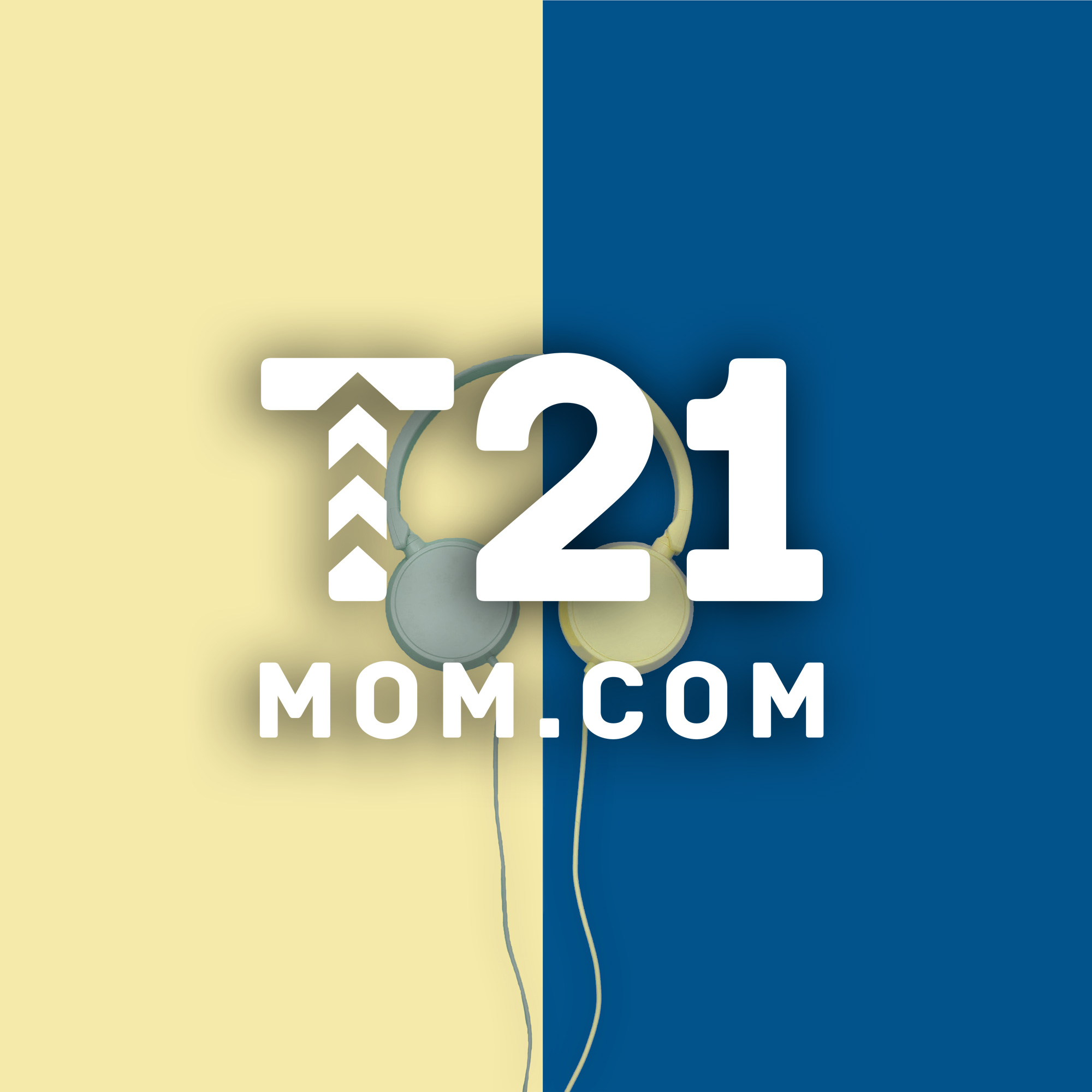
T21Mom-A Down Syndrome Podcast
T21Mom.com
The Collaborative IEP
Ashley Barlow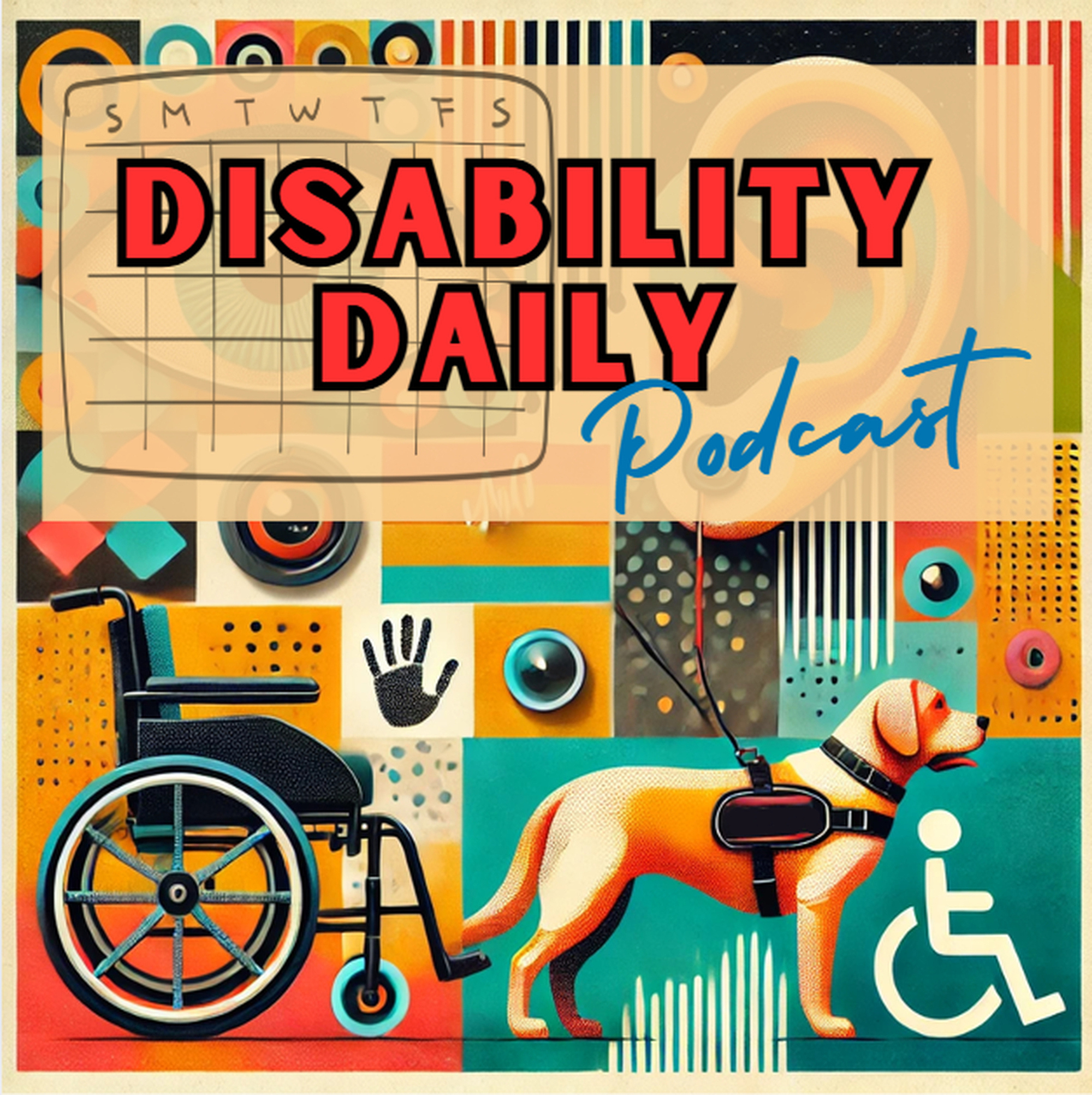
Disability Daily Podcast
Katie Healey, PhD, CPACC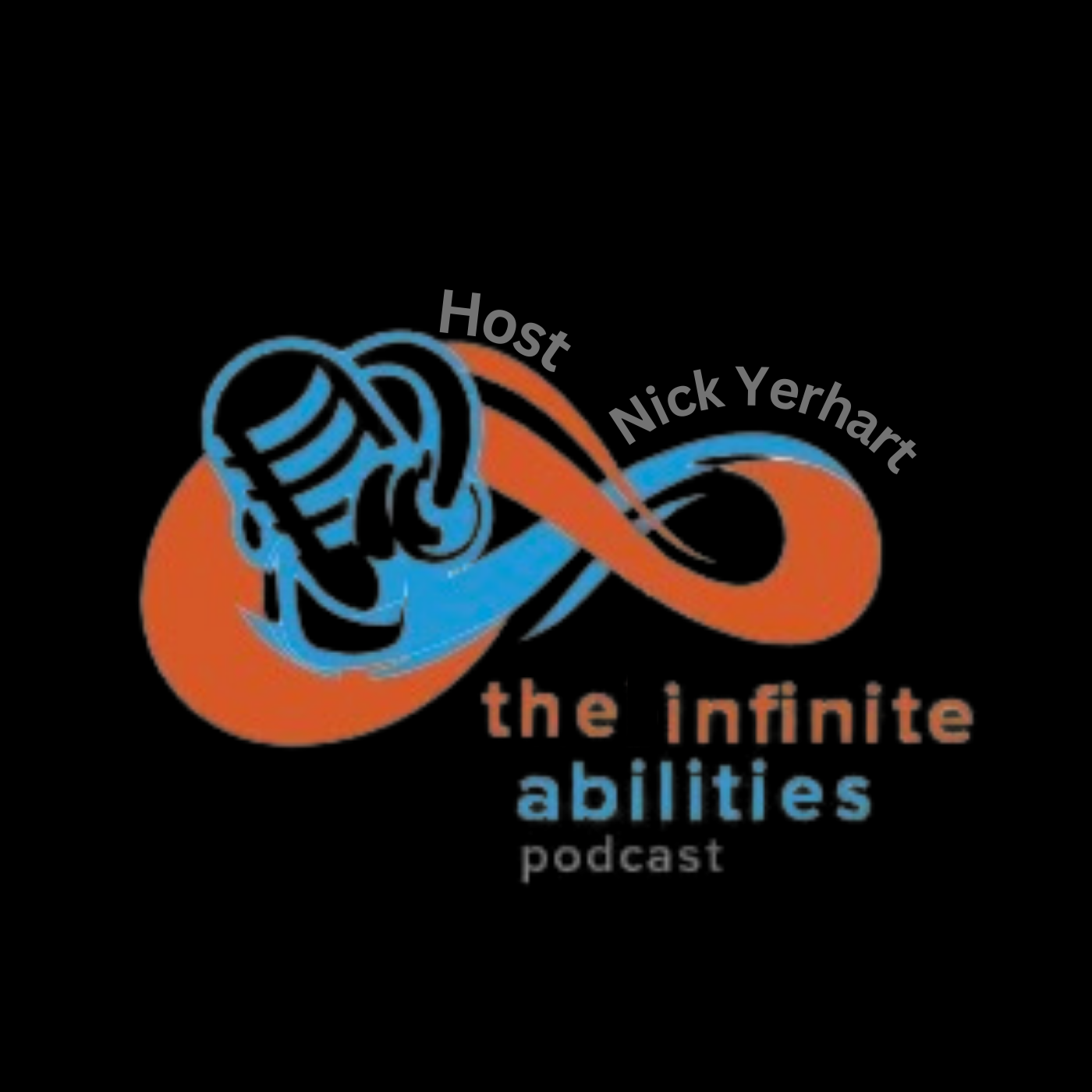
The Infinite Abilities Podcast
Nick Yerhart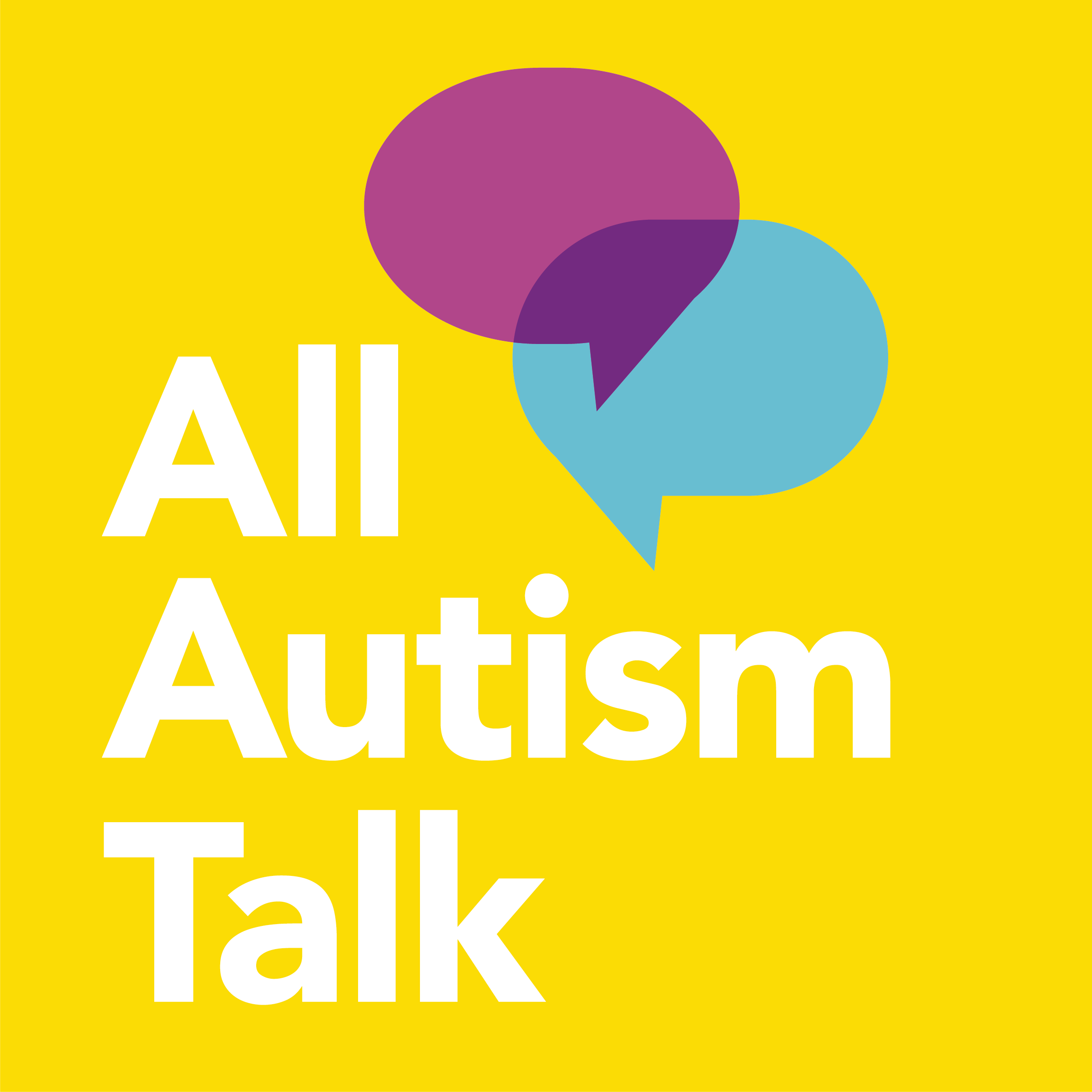
All Autism Talk
All Autism Talk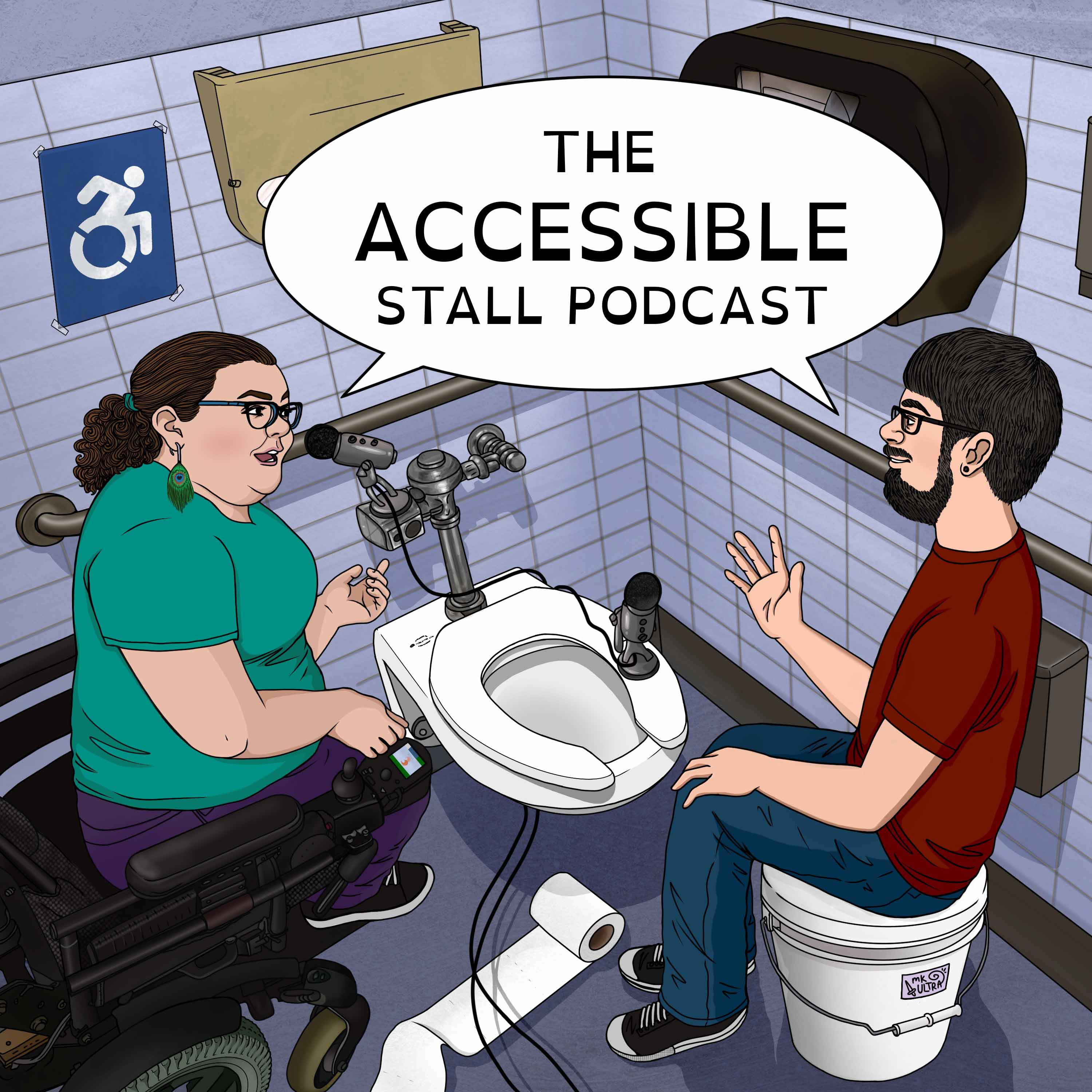
The Accessible Stall
Kyle Khachadurian and Emily Ladau
Disability Deep Dive
Disability Rights Florida
STAY Tuned: Supporting Transition-Age Youth with mental health conditions
STAY Tuned at Transitions to Adulthood Center for Research
Moms Talk Autism Podcast
Shannon Korza, Brittney Crabtree, Tash Dillmon, and Jean Mayer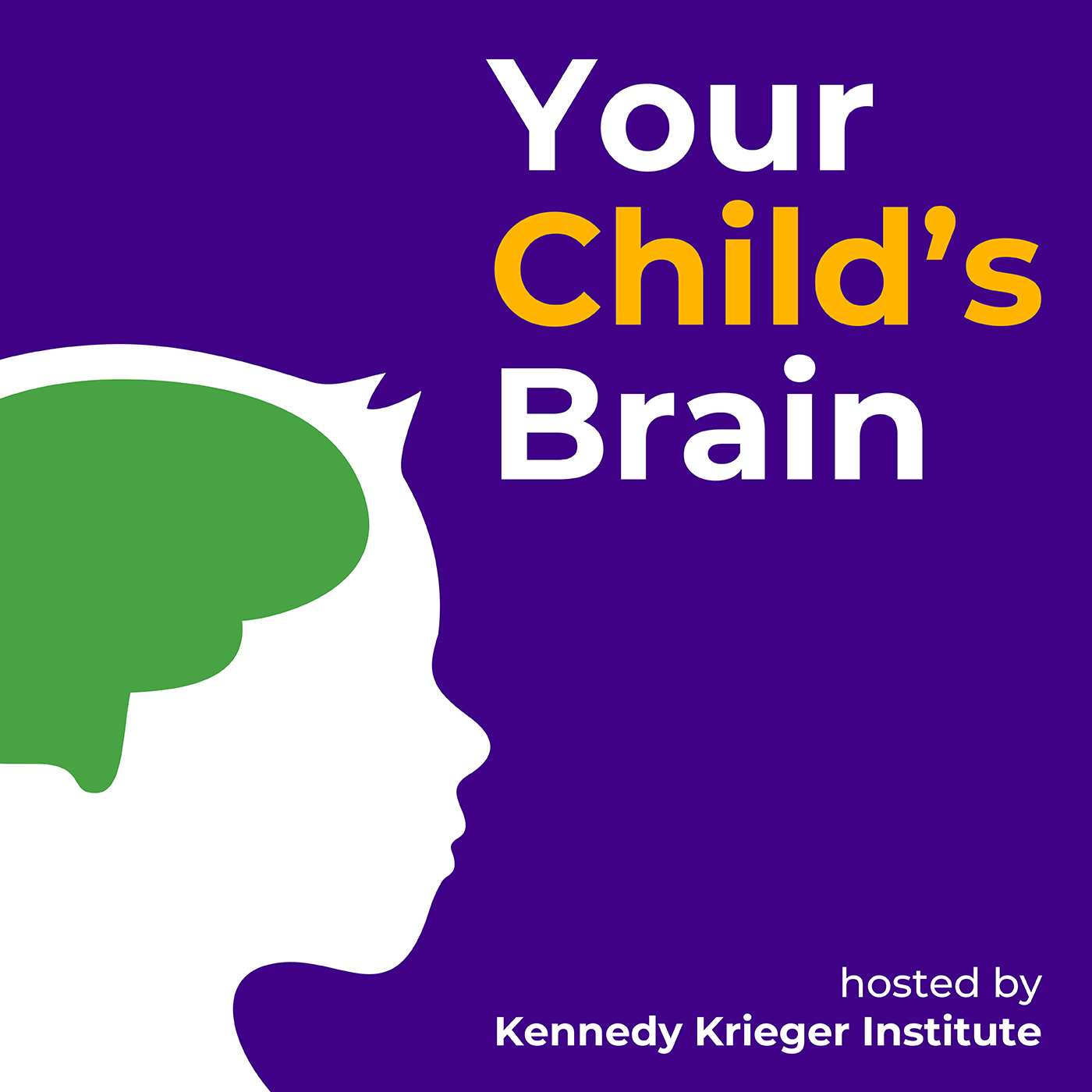
Your Child's Brain
WYPR Baltimore



